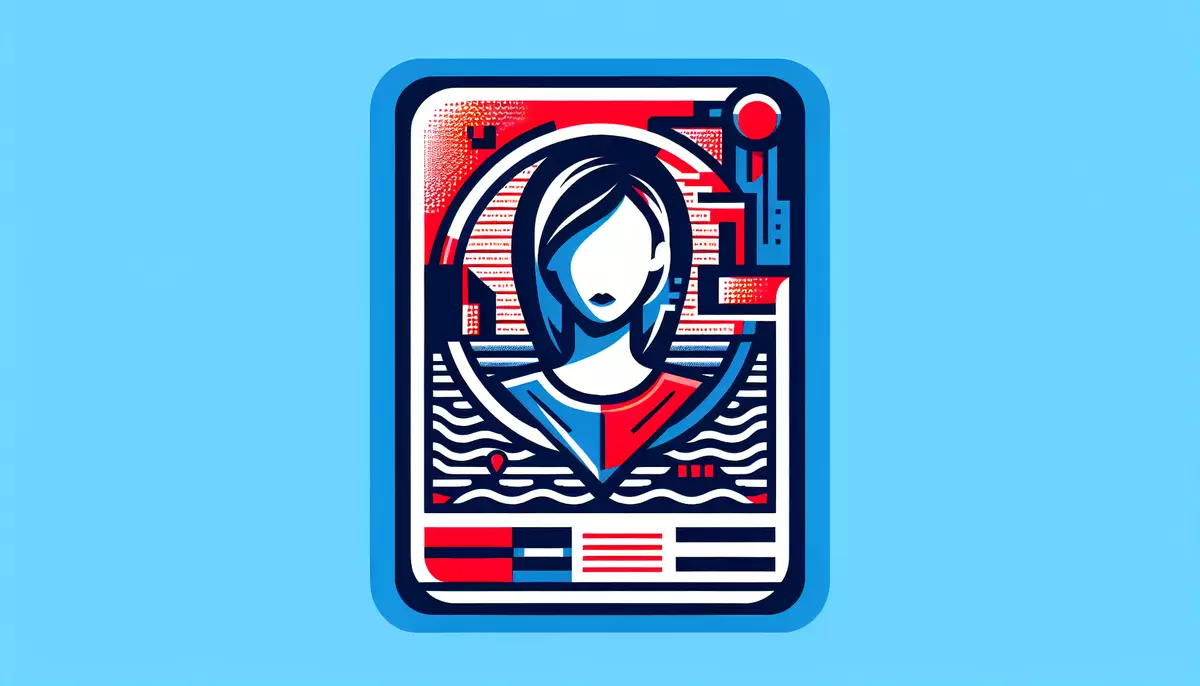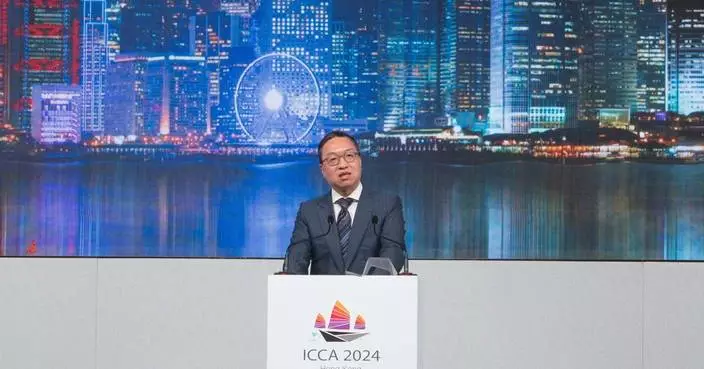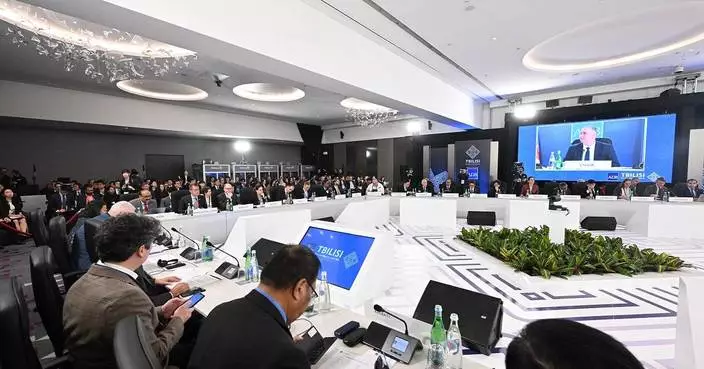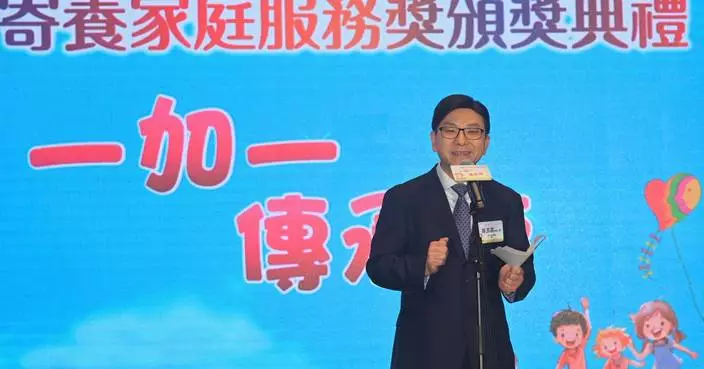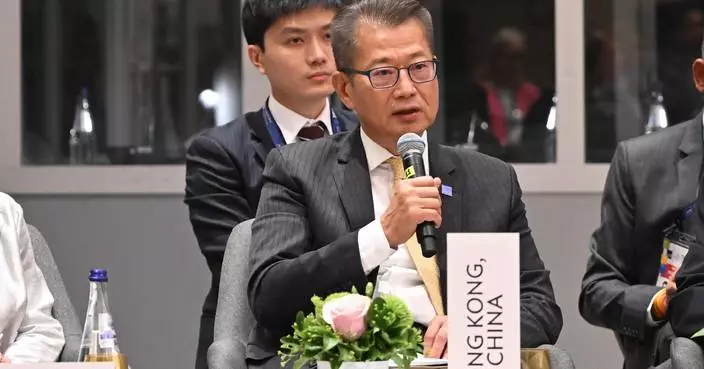Need help? call our mental health support hotline: lcq8
Following is a question by Professor the Hon Priscilla Leung and a written reply by the Secretary for Health, Professor Lo Chung-mau, in the Legislative Council today (April 24):
Question:
The Government launched the "18111 - Mental Health Support Hotline" on December 27, 2023, to provide one-stop, round-the-clock support for people with mental health needs, rendering them immediate mental health support and referral services. The Mental Health Support Hotline, the first mental health support hotline fully-funded by the Government, co-ordinates existing counselling services provided by the Government and non-governmental organisations. Moreover, it is answered 24 hours a day by dedicated personnel who provide immediate support and counselling services to members of the public from all backgrounds and of all ages. Callers will also be referred to the most appropriate service organisations depending on the nature of individual cases. In this connection, will the Government inform this Council:
(1) of the total number of calls received by the authorities since the launch of the Mental Health Support Hotline and, among them, the number of calls from (i) first-time callers, (ii) non-first-time callers, (iii) people with mental health needs themselves, and (iv) relatives and friends or carers of people with mental health needs (with a breakdown of people with mental health needs by age, gender, occupation, educational attainment, marital status, district of residence, language used and ethnicity);
(2) of the following statistics on the cases received by the authorities since the launch of the Mental Health Support Hotline (with a breakdown by age, gender, occupation, educational attainment, marital status, district of residence, language used and ethnicity):
(i) cases referred to other service organisations;
(ii) cases that received immediate brief counselling;
(iii) high-risk cases;
(iv) suicidal cases;
(v) cases involving domestic or sexual violence;
(vi) cases involving mental illness;
(vii) cases involving emotional disturbance;
(viii) cases involving livelihood pressure;
(ix) cases involving academic or occupational disturbance;
(x) cases involving social or interpersonal disturbance; and
(xi) cases involving other issues;
(3) how it ensures that the service resources of the Mental Health Support Hotline are adequate and appropriate, e.g. whether it has (i) adjusted and increased service resources (including (a) the number of hotlines, (b) the number, qualifications and training of hotline operators, (c) the number and types of service organisations accepting the relevant referrals, and (d) the scope and modes of counselling and support services provided by the hotlines) according to service demand and user feedback, (ii) considered expanding the services to other platforms (e.g. websites, mobile applications and social media), (iii) provided tailor-made services for different user groups, and (iv) provided services for people using different languages and dialects;
(4) how it assesses the service quality and effectiveness of the Mental Health Support Hotline, e.g. whether it has (i) conducted user satisfaction surveys or followed up cases on a regular basis, (ii) collected and analysed users' comments and suggestions, (iii) formulated and implemented service improvement plans, (iv) set service indicators and standards, (v) published service reports and statistics on a regular basis, (vi) conducted service evaluations and audits, and (vii) established and maintained good co-operative relationships with other relevant service organisations; if so, whether it has given the Legislative Council or the public an account of the relevant service situations or reported to them on such situations; and
(5) how it will step up the publicity and promotion of the Mental Health Support Hotline, e.g. whether it has (i) formulated and implemented publicity strategies and plans, (ii) made use of different channels and means to introduce and promote the relevant services to members of the public, (iii) collaborated with different stakeholders and partners, and (vi) designed and distributed relevant publicity materials targeting different user groups and people using different languages and dialects?
Reply:
President,
The reply to the question raised by Professor the Hon Priscilla Leung is as follows:
(1) and (2) The Health Bureau launched the "18111 - Mental Health Support Hotline" (the Hotline) on December 27, 2023, to provide one-stop, round-the-clock support for people with mental health needs (including carers), rendering emotional and mental health support to persons from all backgrounds and of all ages. Callers will be provided with service information or referred to appropriate service organisations based on their individual needs.
As at March 21, 2024, the Hotline has answered a total of around 30 000 calls (i.e. an average of about 349 calls per day) and provided immediate support. There could be multiple reasons for calling, and the more common reasons include mental distress (21 per cent), family relationship (14 per cent), physical health problems (13 per cent) and work pressure (12 per cent).
The Hotline has referred a total of around 200 cases to the Integrated Community Centre for Mental Wellness and the Designated Hotline for Carer Support of the Social Welfare Department (SWD), the Hospital Authority (HA)'s Mental Health Direct hotline and non-governmental organisations (NGOs), etc, for further follow-up. Among them, two of the cases were more urgent and required immediate referral to the Police for follow-up.
The Hotline aims at providing immediate mental health support and referral services. In order not to cause distress to callers or discourage them from using the service, the Hotline does not require all callers to provide their personal data after receiving the service. The Hotline only collects personal data, such as telephone numbers and names, which are necessary for making referrals when required and according to the individual circumstances of the callers. All persons with mental health needs (irrespective of whether they are first-time callers and they themselves are the persons with mental health needs or not) are the service targets of the Hotline. The Hotline does not maintain relevant breakdown statistics.
(3)(i) The Government has been closely monitoring the operation of the Hotline and regularly reviewing the effectiveness of the services with the operator in terms of areas such as the service, operation, manpower arrangement and publicity in accordance with the review requirements stipulated in the contract with the operator. The Hotline can answer calls from at least six lines at the same time, and can answer calls from a maximum of 30 lines at the same time through appropriate manpower deployment having regard to the circumstances.
All call handlers of the Hotline have relevant counselling experience and have received professional training related to mental health, including mental health knowledge, emotional support skills and crisis response, to equip them with sufficient skills to provide brief counselling when necessary, and to provide service information or referral to appropriate service organisations according to the needs of individual callers. In addition, call handlers will answer calls under the supervision of two supervisors at all times. In case of emergency, immediate risk management can be carried out by contacting the Police or the Fire Services Department (FSD) for immediate follow-up.
The Hotline has now established referral mechanisms with relevant government departments/organisations, including the FSD, the Hong Kong Police Force, the SWD, and the HA, as well as about 20 NGOs providing suicide prevention counselling services and mental health support services. The NGOs concerned target different groups including ethnic minorities, the youth and women.
(ii) Taking into account the outcome of the review of the operation, the Government will consider the feasibility of extending the service to other platforms (such as instant messaging software) in consultation with the Advisory Committee on Mental Health in due course.
(iii) As mentioned in (i) above, the Hotline refers help-seekers to the most appropriate service organisations according to their needs through collaboration with different NGOs. The Hotline will continue to establish referral mechanisms with more NGOs providing different services as necessary, with a view to providing mental health support services to members of the public on all fronts.
(iv) The Hotline offers service in Cantonese as the main language and also provides Putonghua and English services. A mechanism has been established with relevant NGOs to provide interpretation services to callers who speak ethnic minority languages in the form of teleconferencing when necessary.
(4) The Government has been closely monitoring the operation of the Hotline and regularly reviewing the effectiveness of the services with the operator in terms of areas such as the service, operation, manpower arrangement and publicity in accordance with the review requirements stipulated in the contract established with the operator. Furthermore, the Government plans to commission a service evaluation study by an independent organisation in the third quarter of 2024. The Government is preparing the study framework, including exploring different directions of collecting views from relevant stakeholders (such as NGOs) through focus groups and conducting questionnaires, etc, with a view to evaluating the services comprehensively.
(5) The Government has launched a publicity programme in the first quarter of 2024 and rolled out a number of online and offline promotional activities as the highlight of this year's publicity campaign on mental health. Service information of the Hotline has been disseminated to the public through various channels, such as setting up a dedicated page in the website of the "Shall We Talk" mental health promotion and public education initiative, and the Government's social media platforms including the "Shall We Talk" page and the "Tamar Talk" page. In offline terms, the Government has produced posters and invited schools, hospitals, public clinics, social welfare organisations, public housing estates and property management organisations to facilitate promotion by displaying the posters at relevant venues. Additionally, relevant promotion videos have also been broadcast on television, at railway stations and in train compartments. The Government will continue to step up publicity and promotion of the Hotline and provide support to persons with mental health needs in a more timely manner.

Source: AI-generated images



